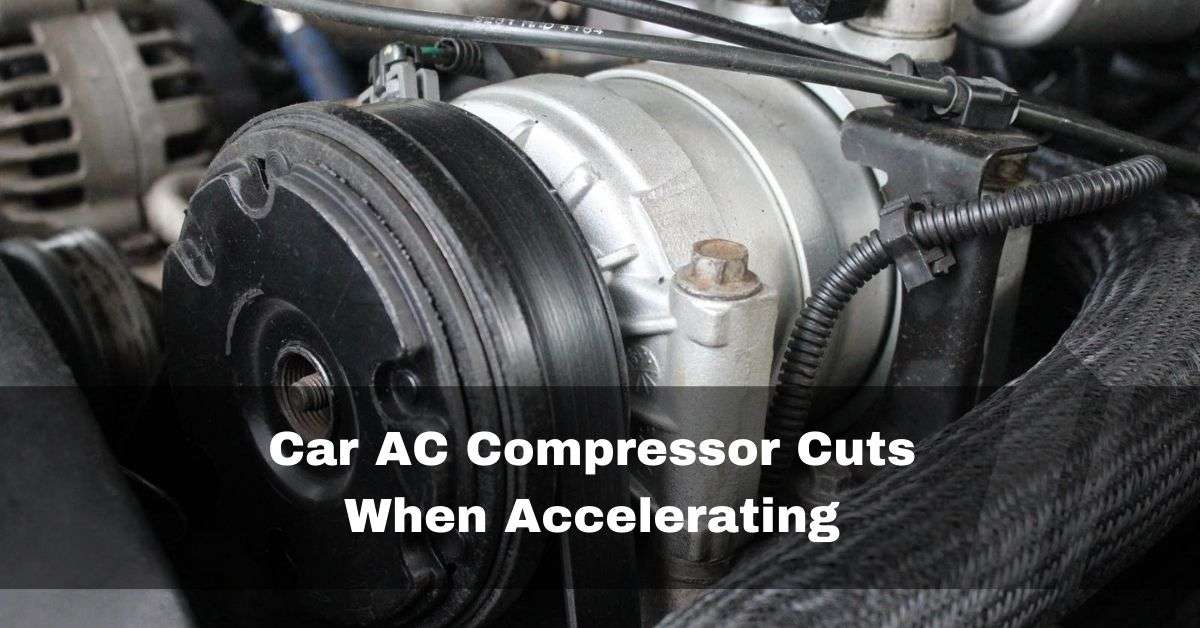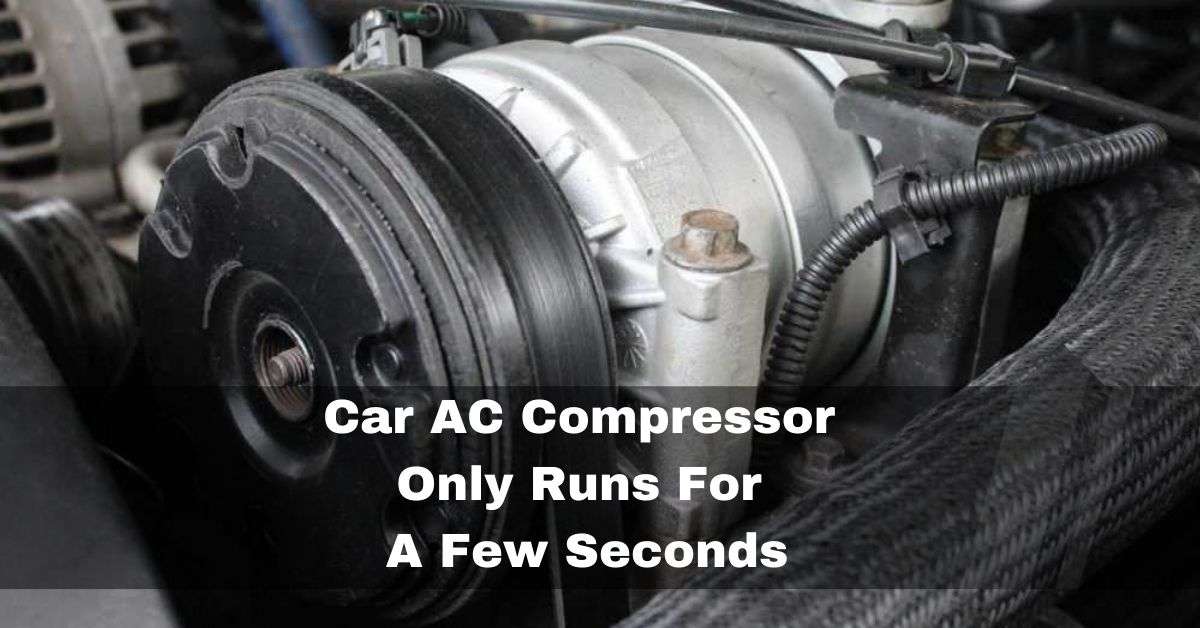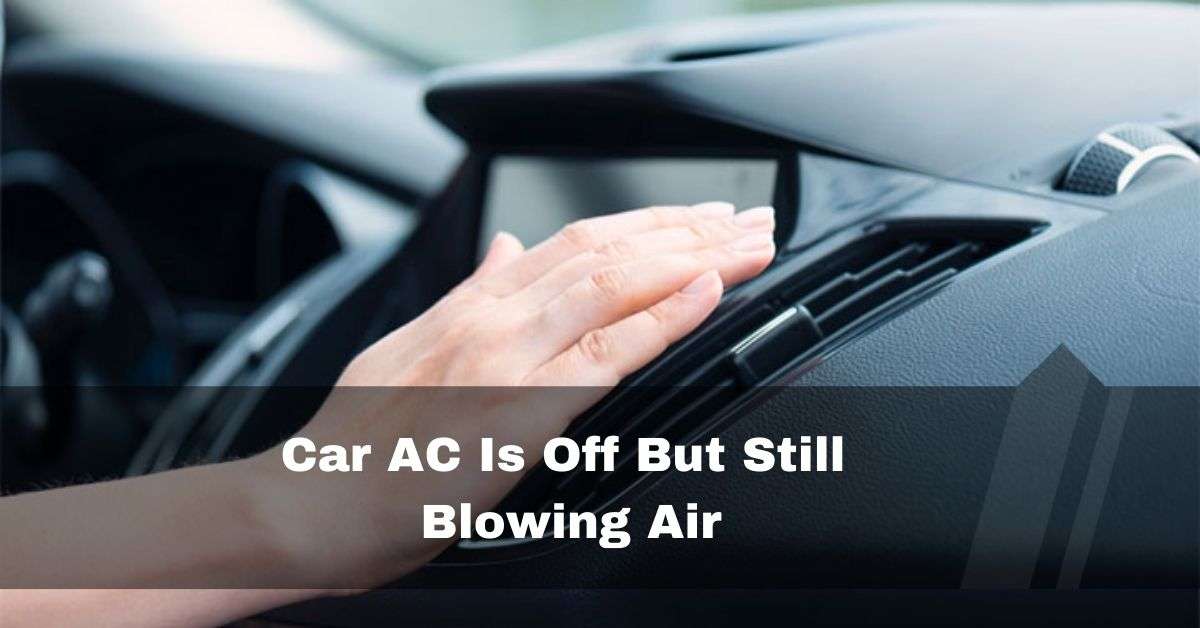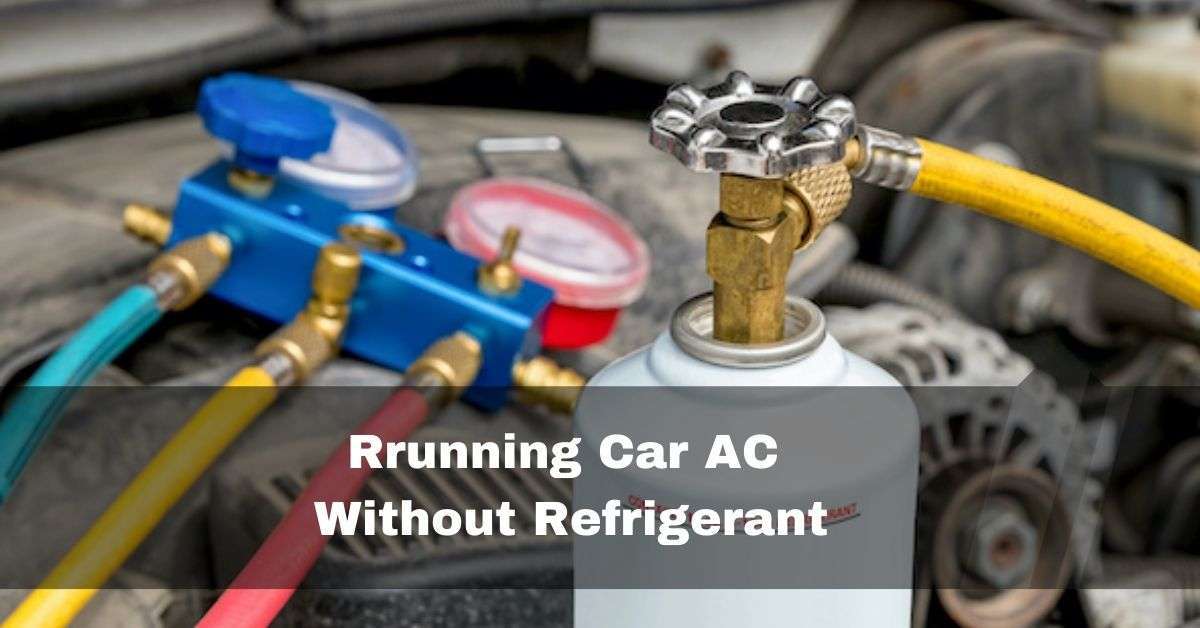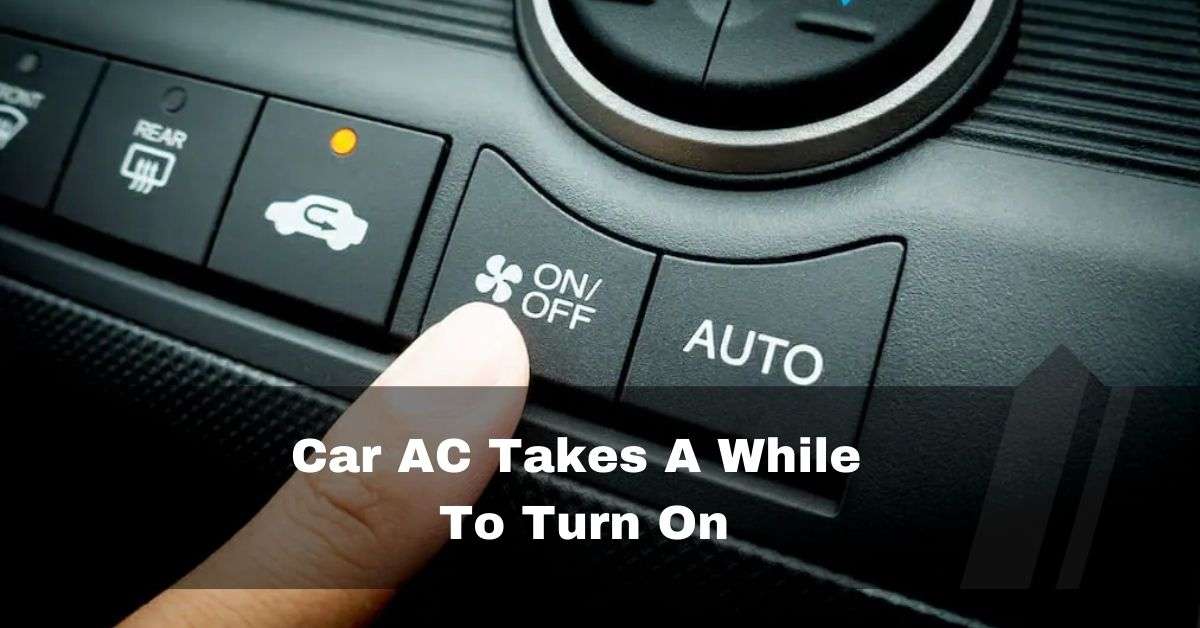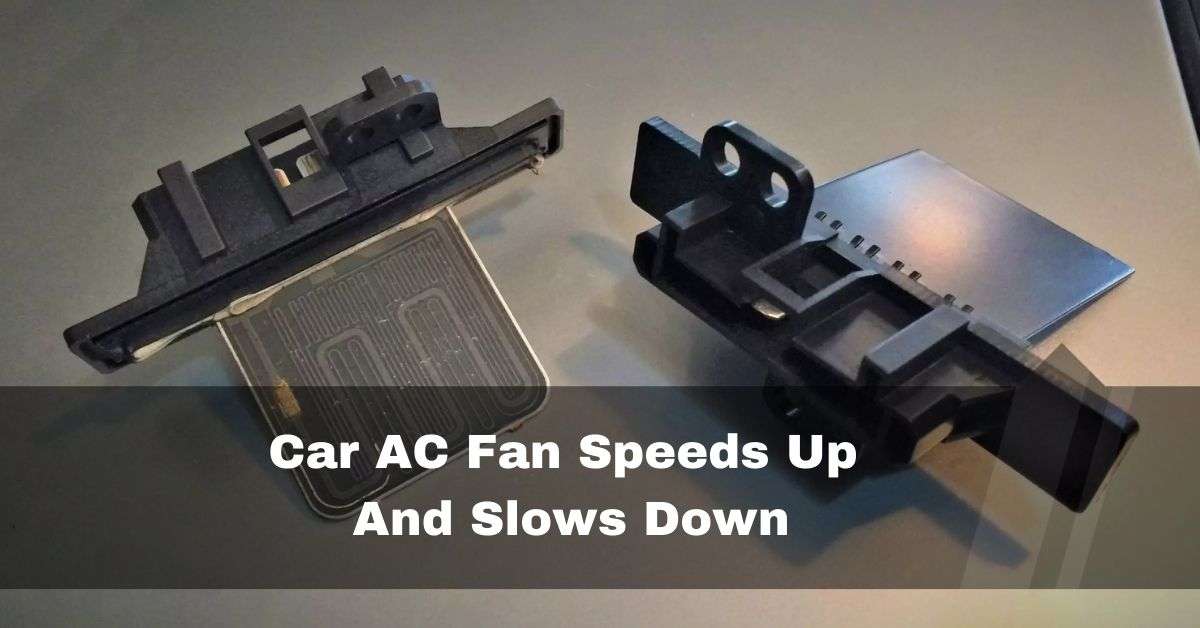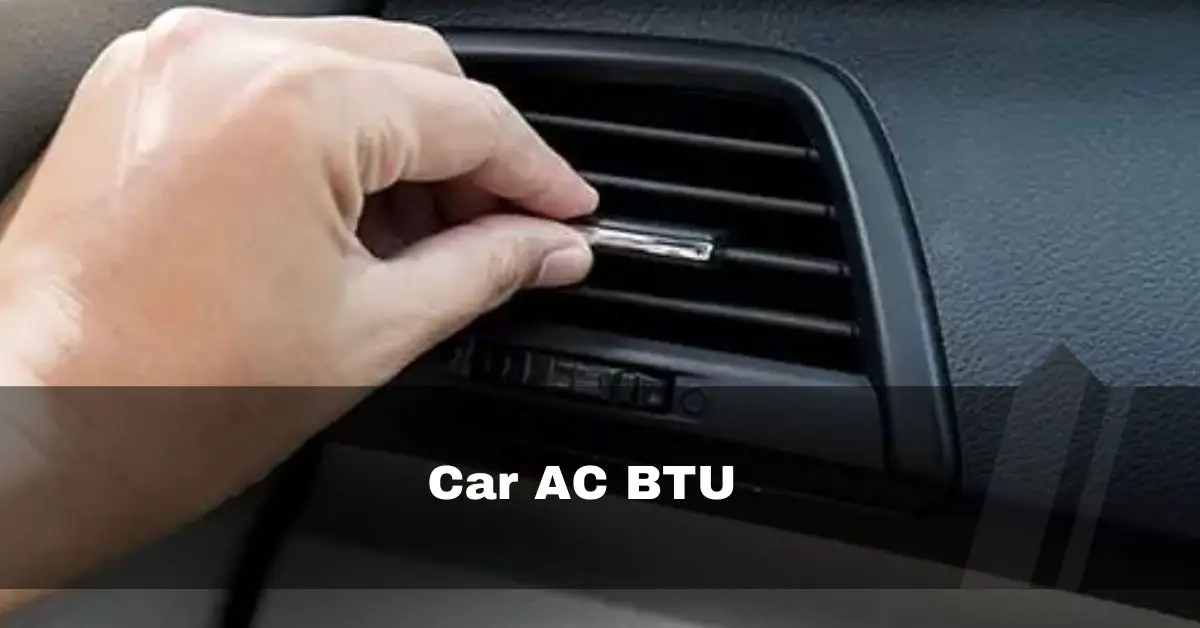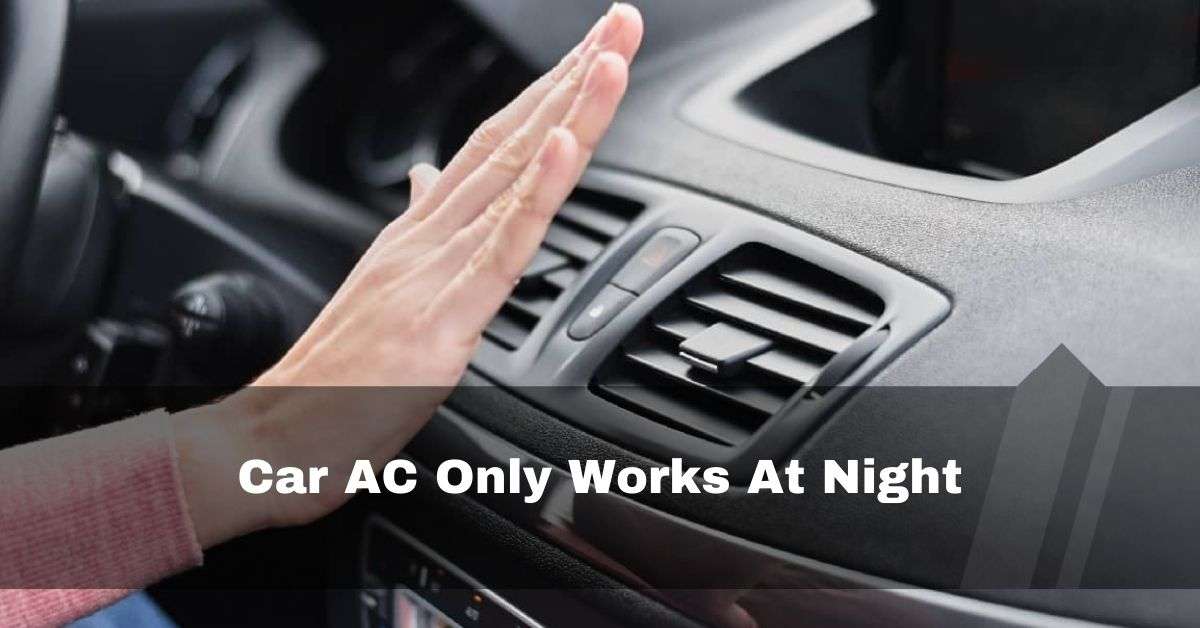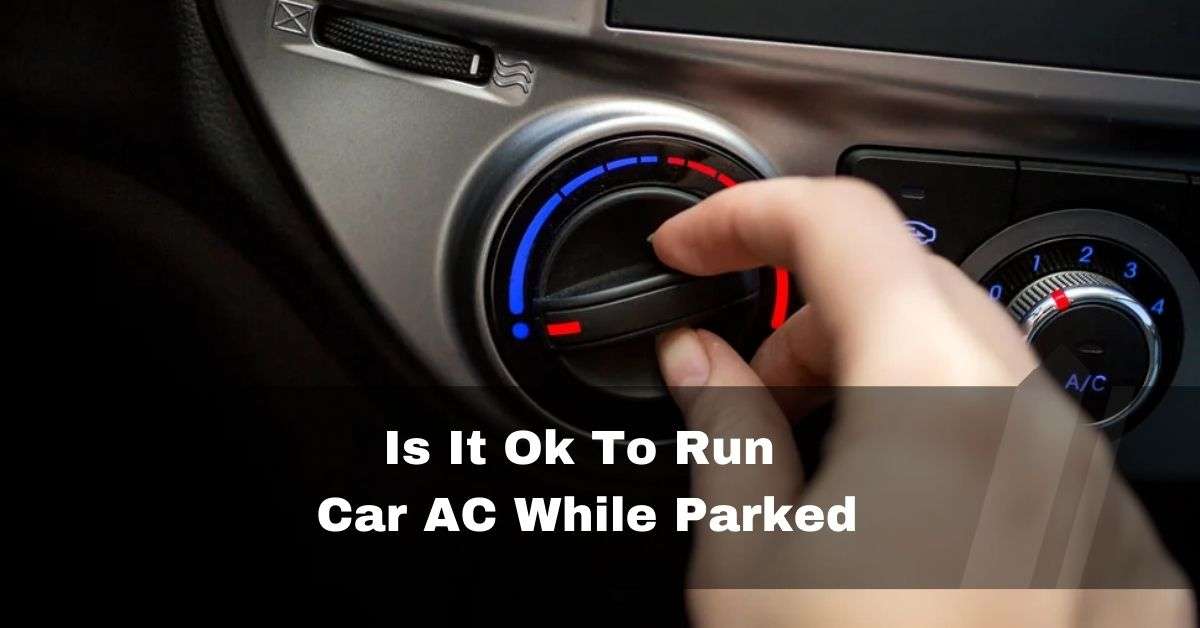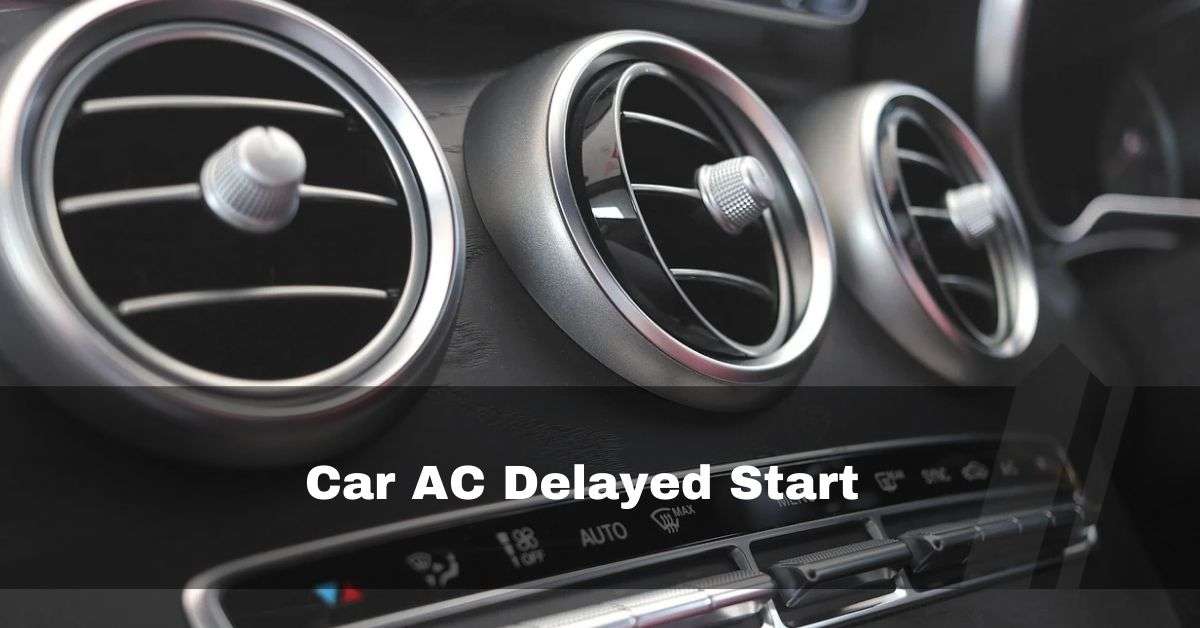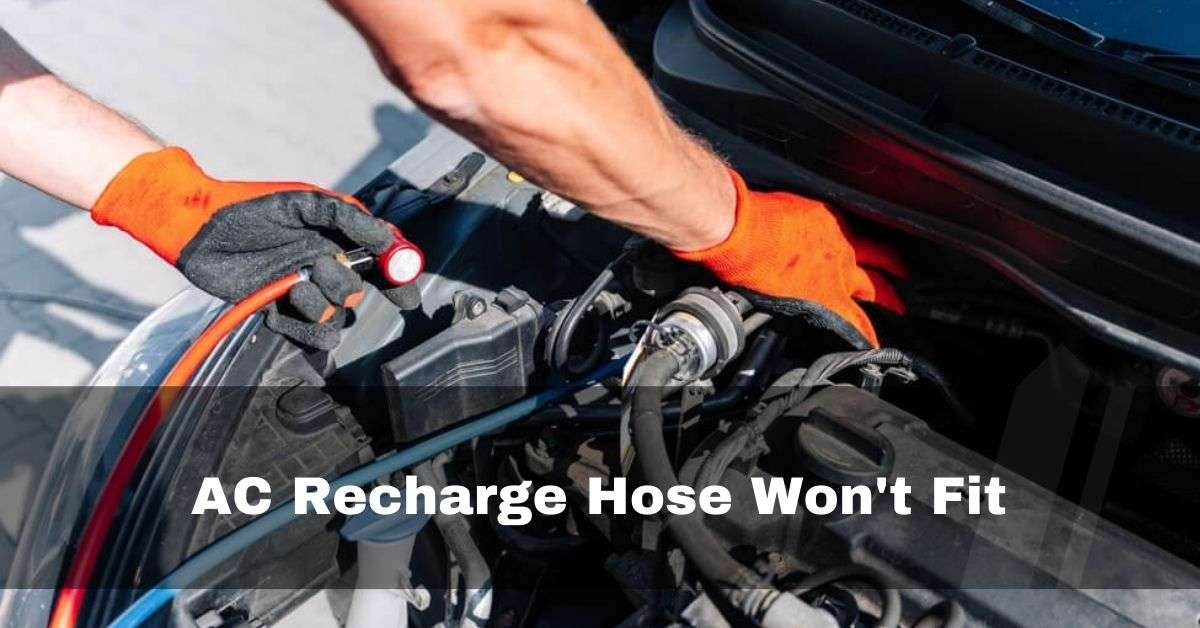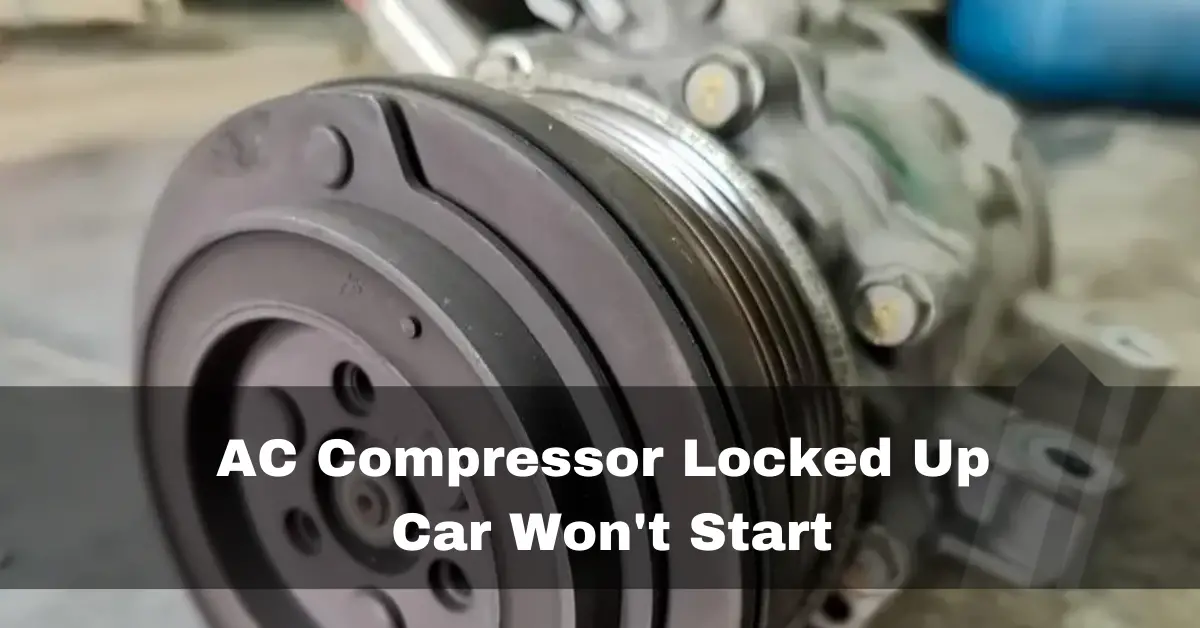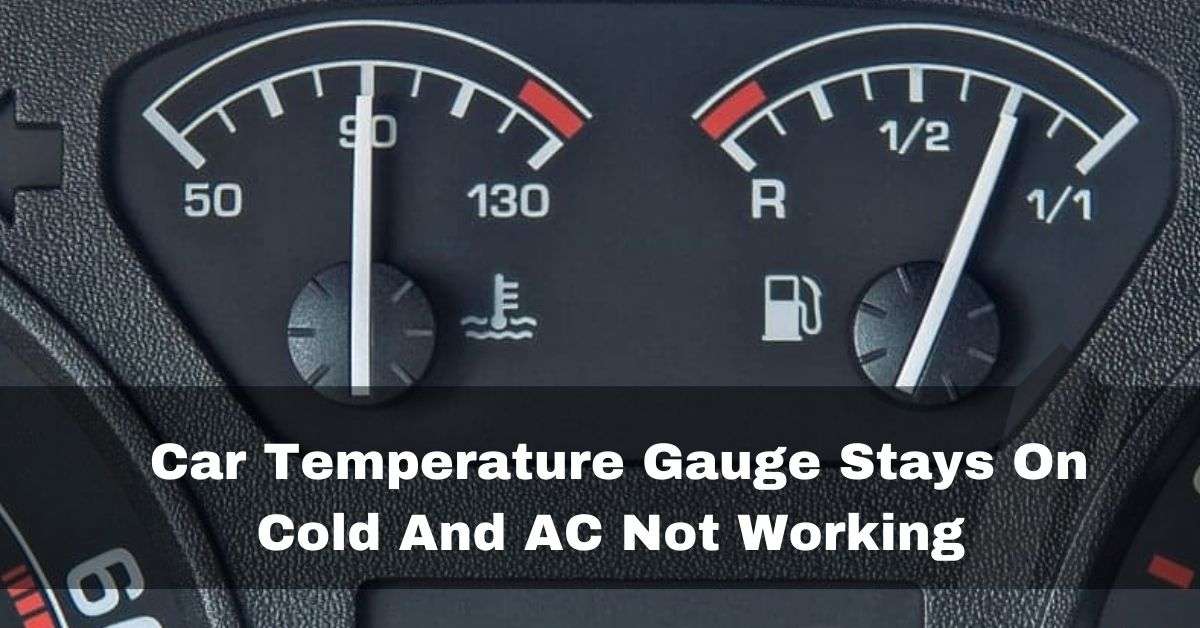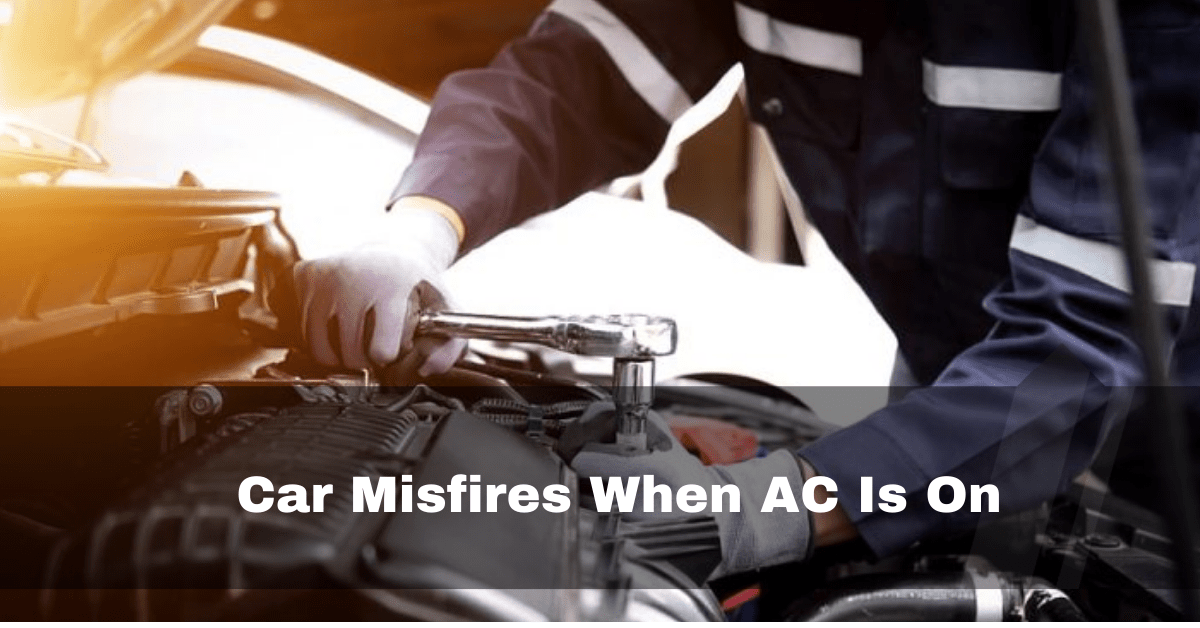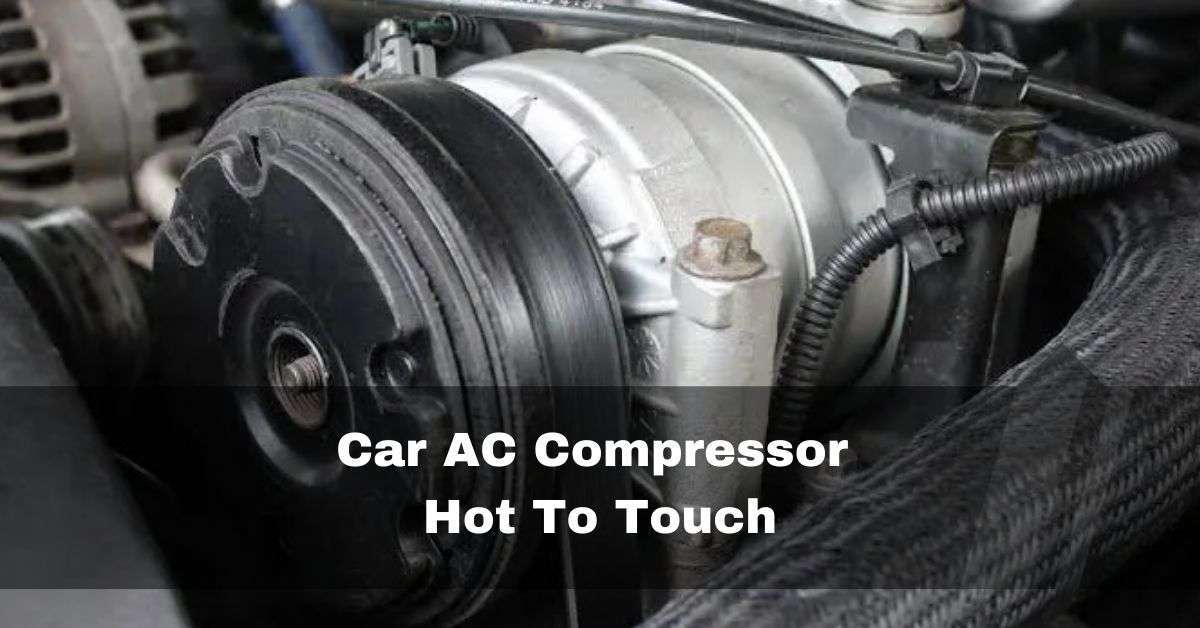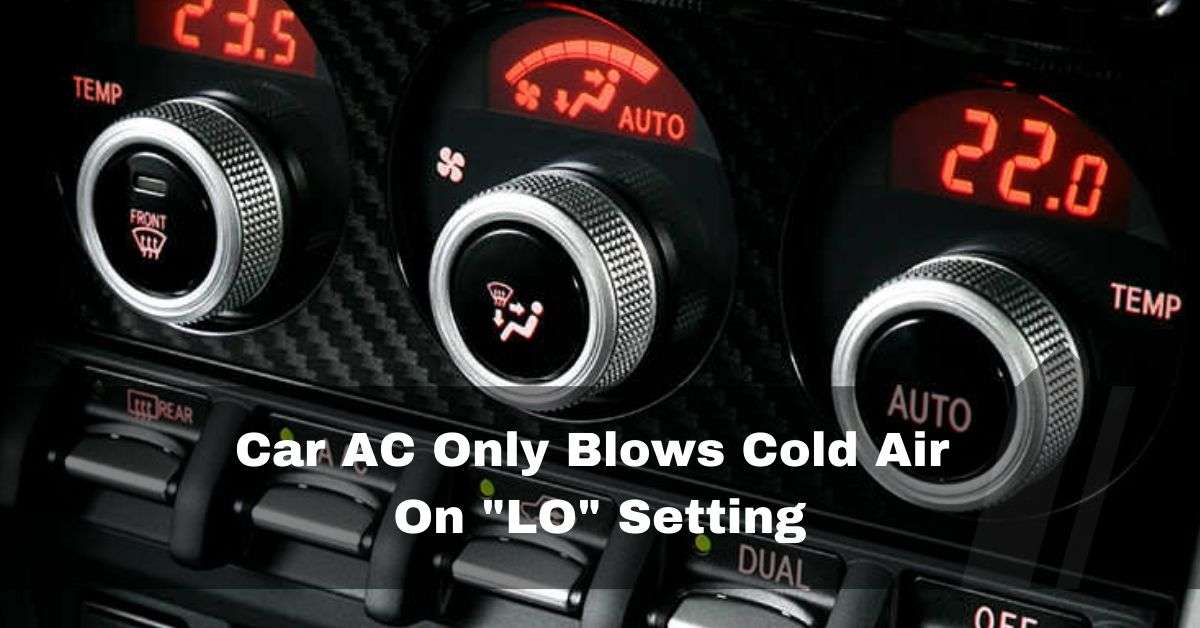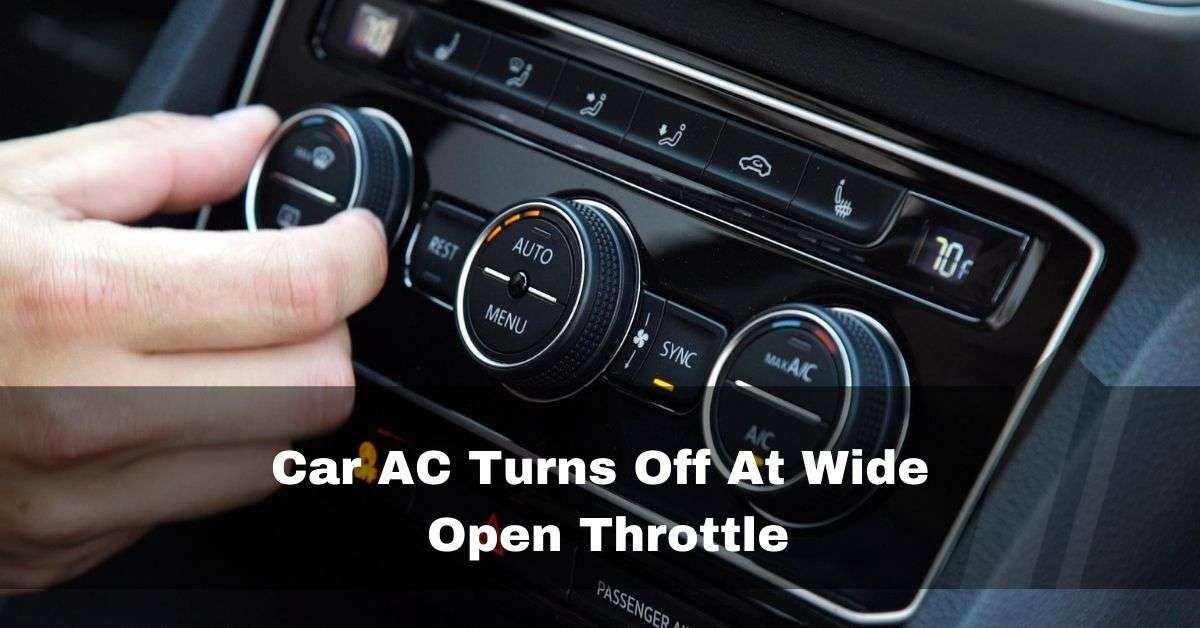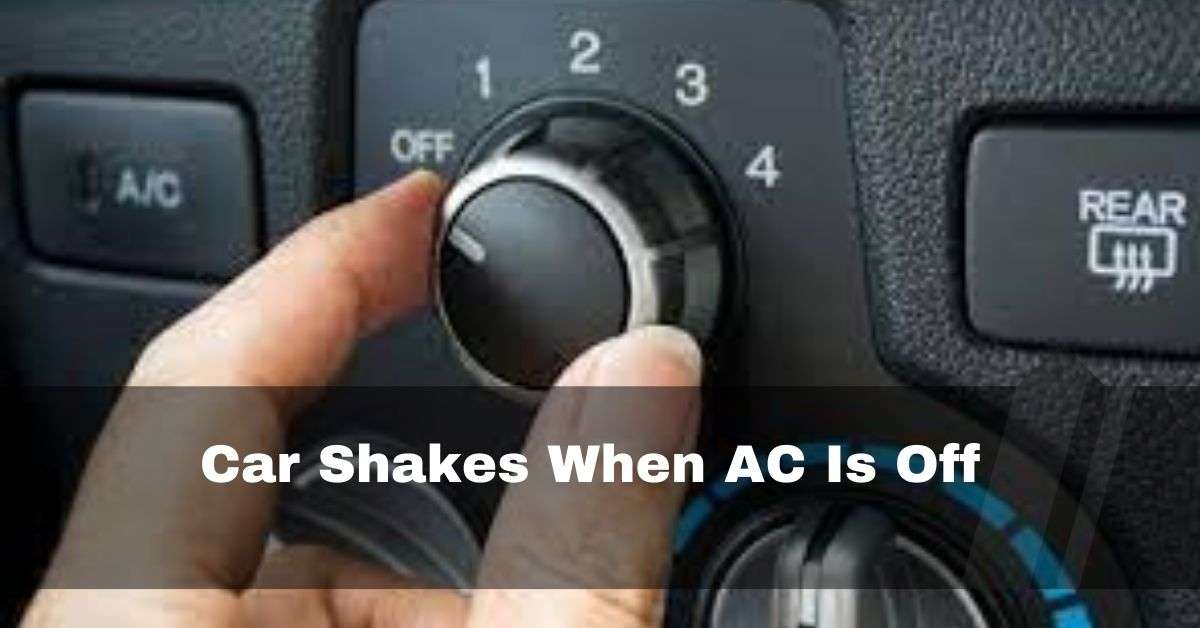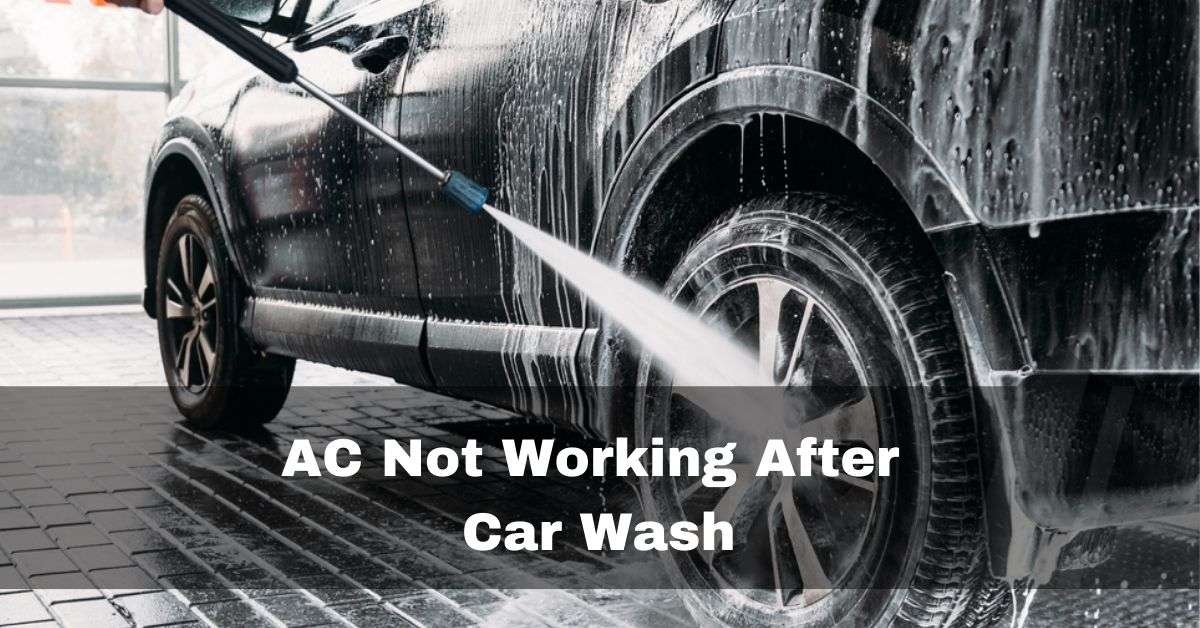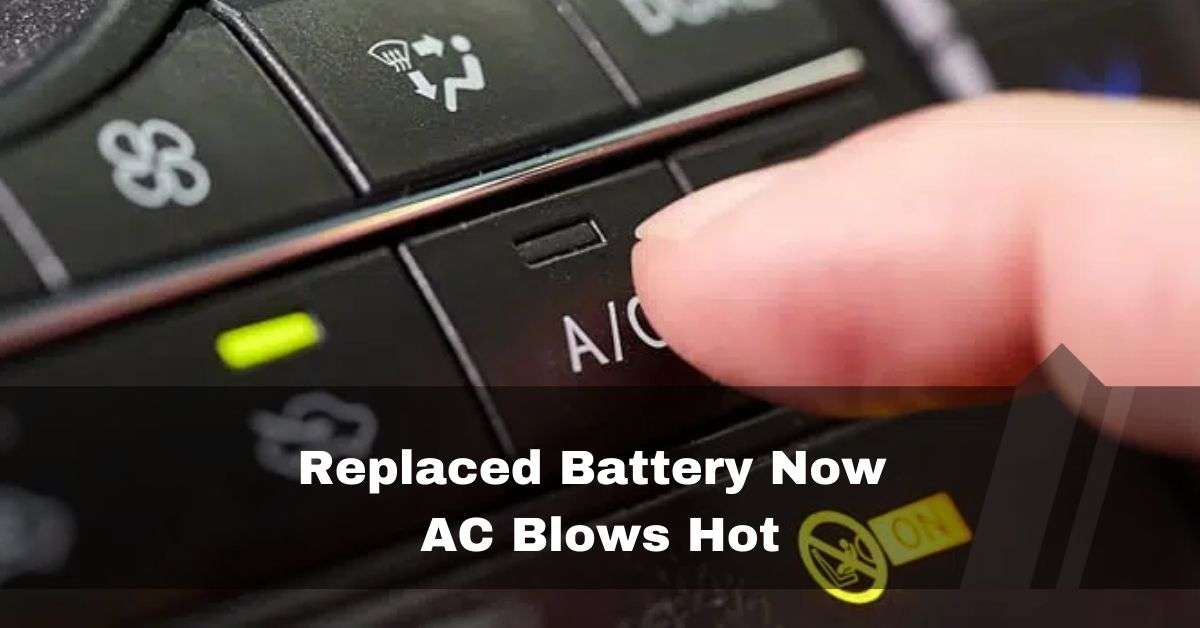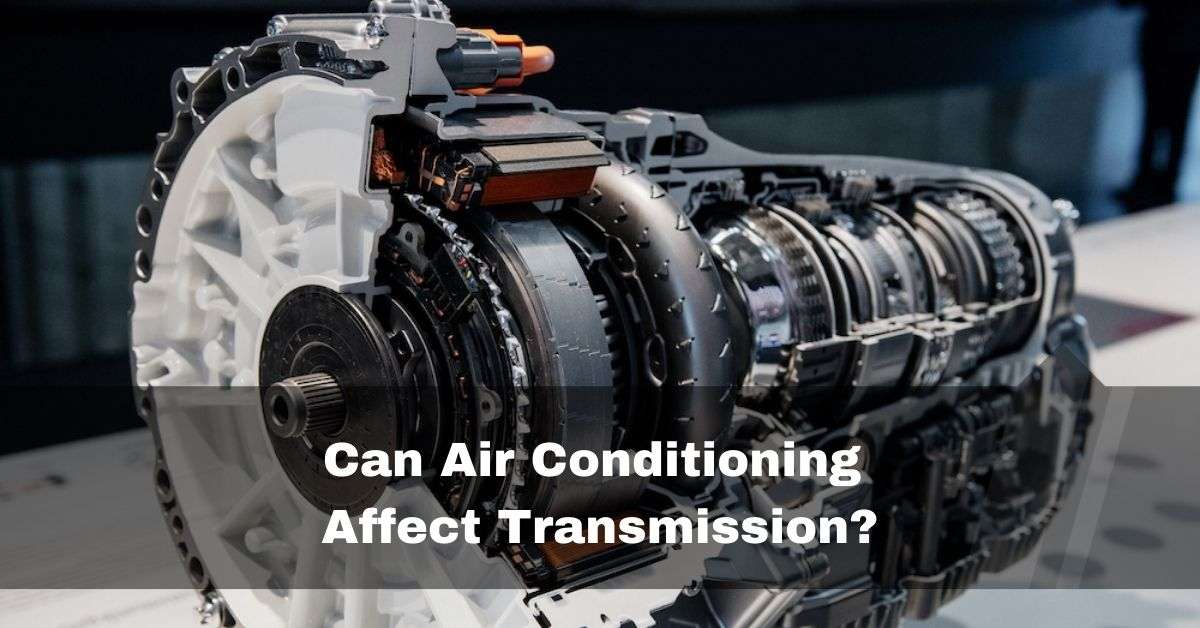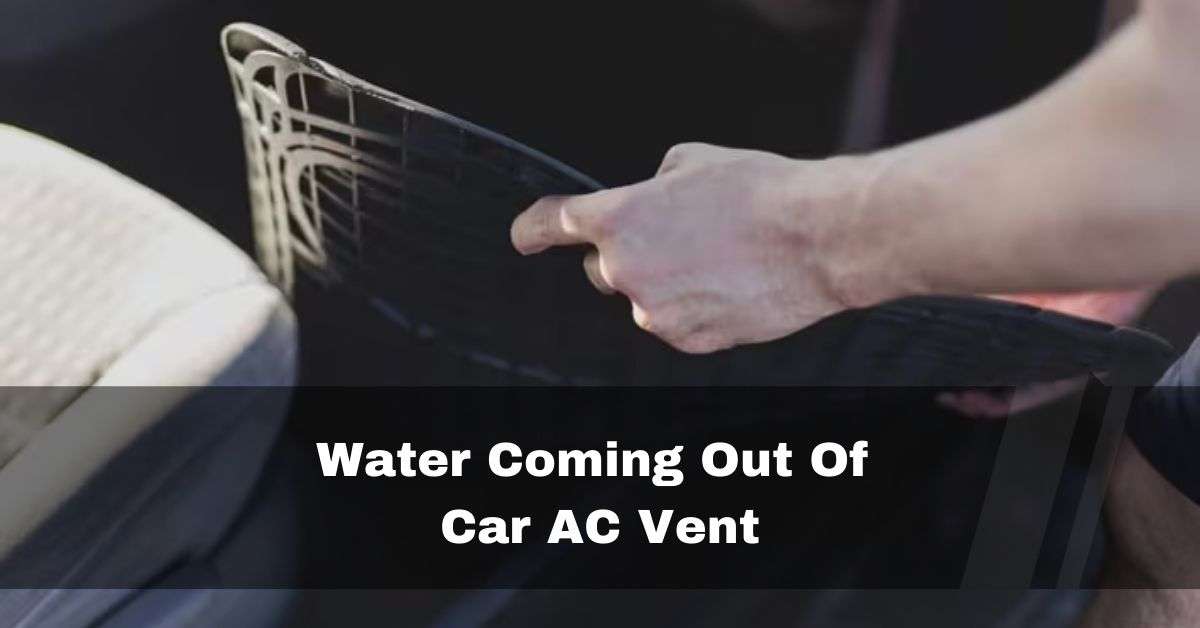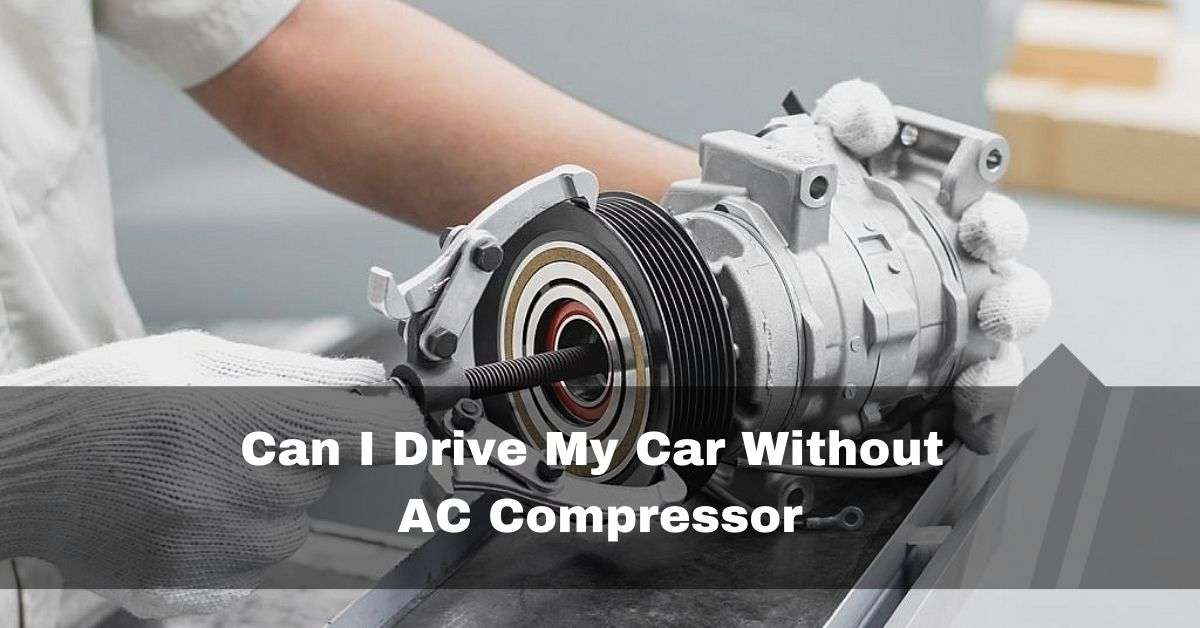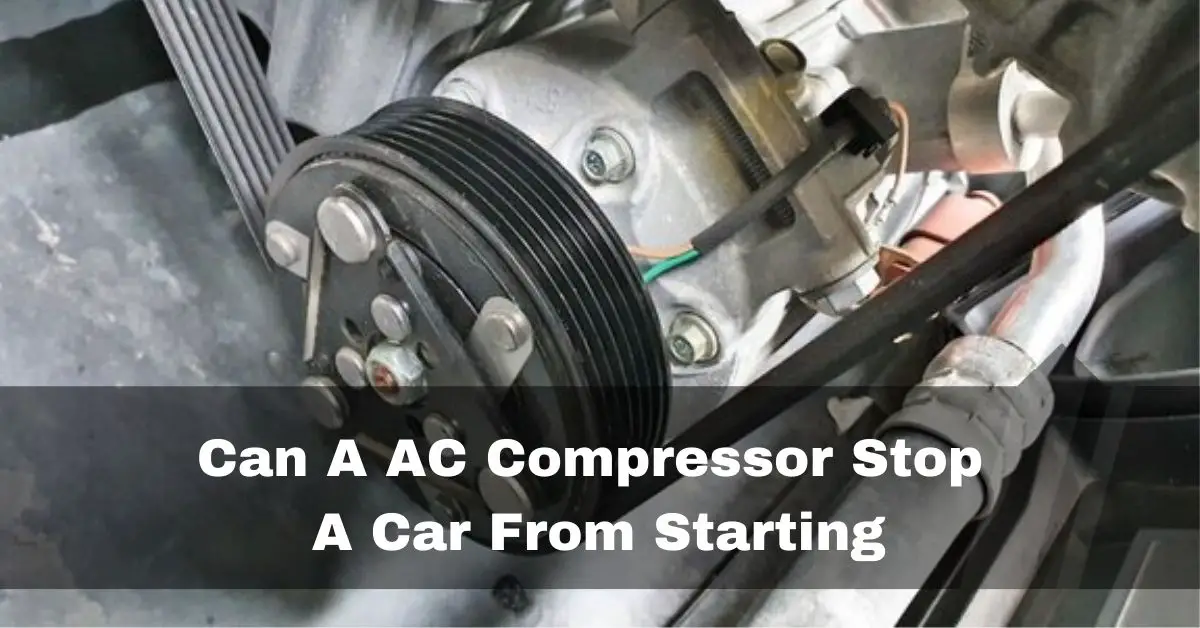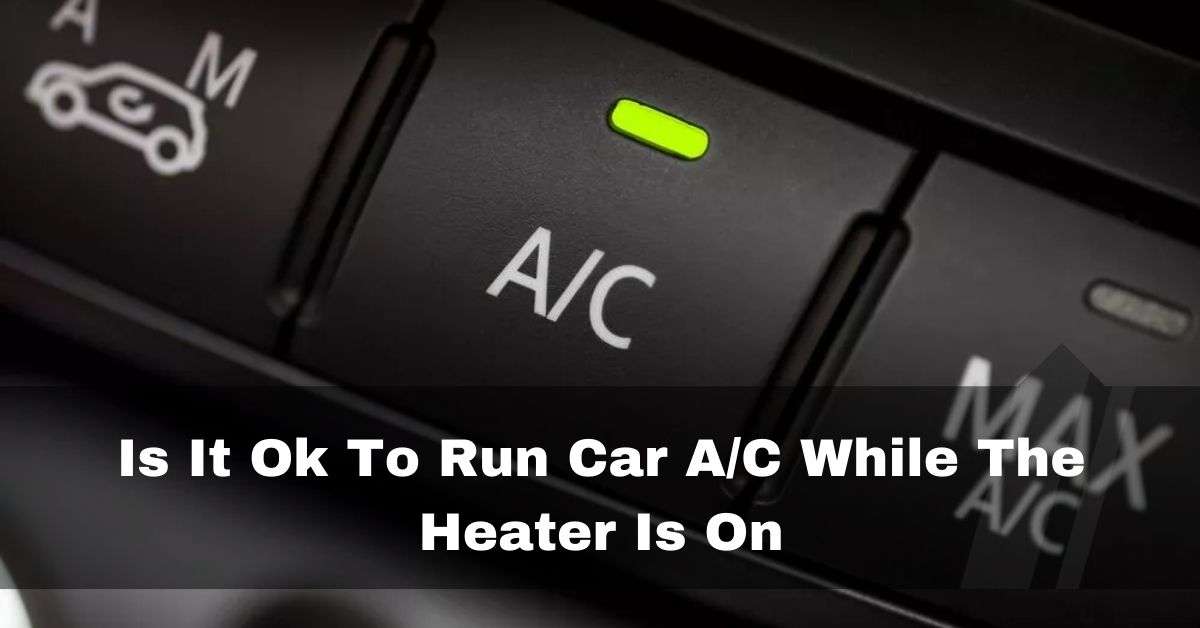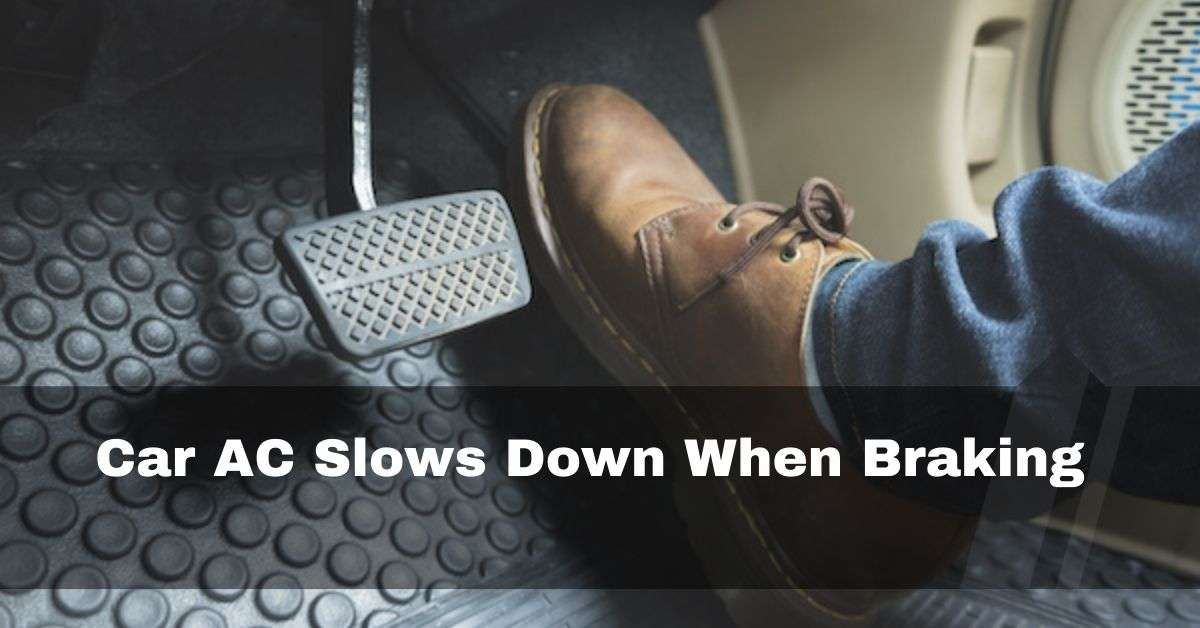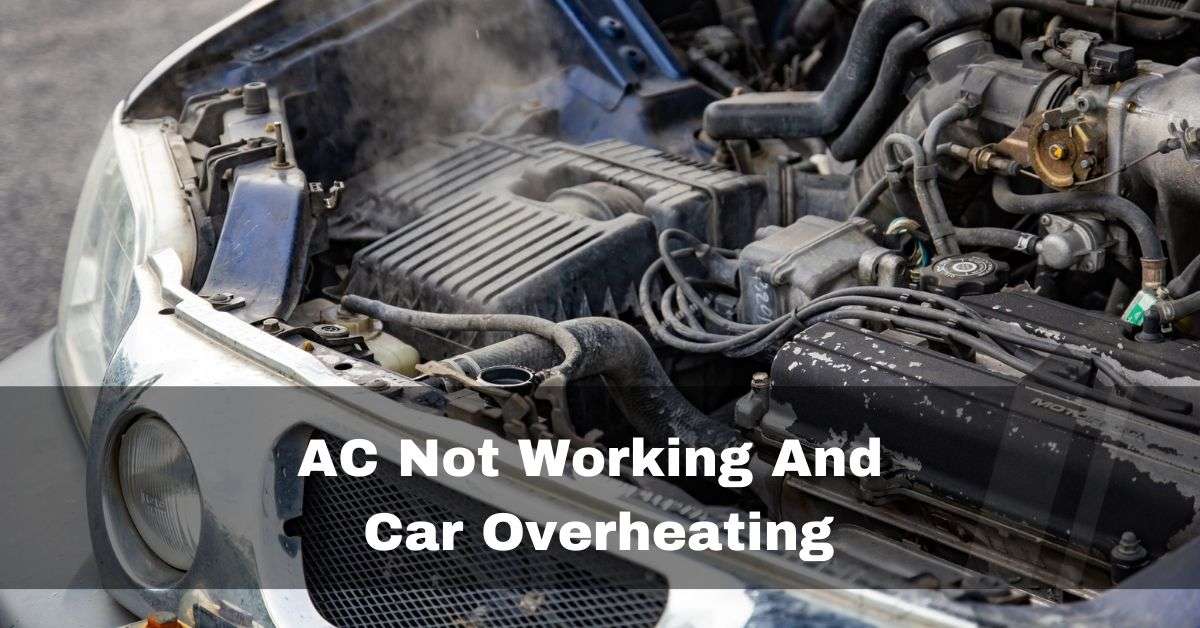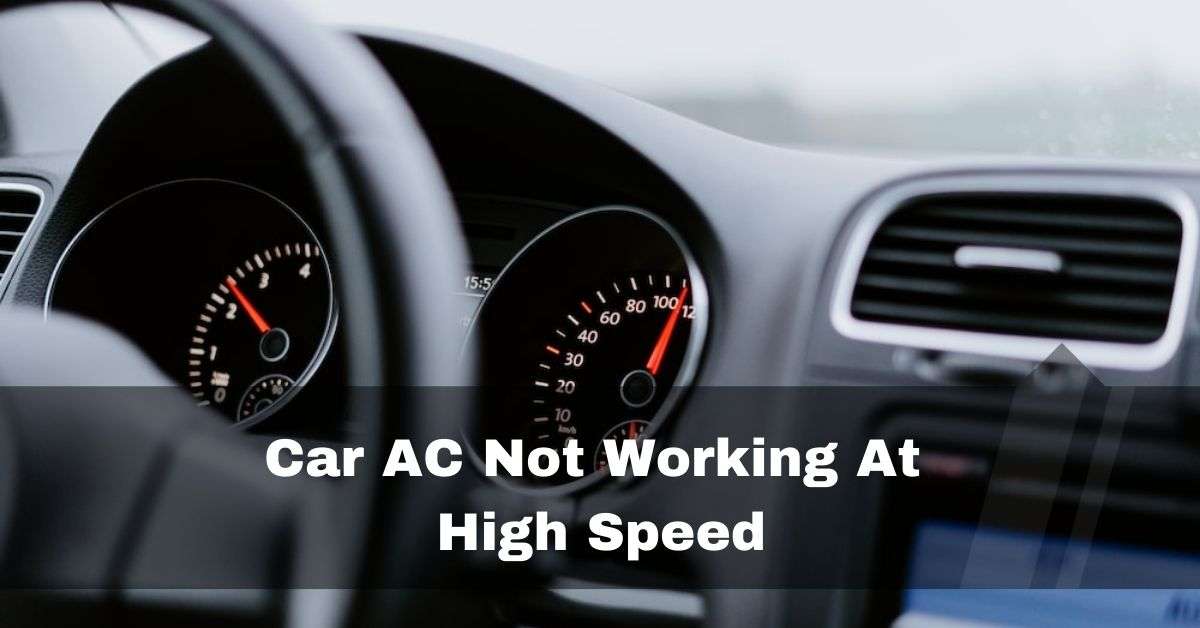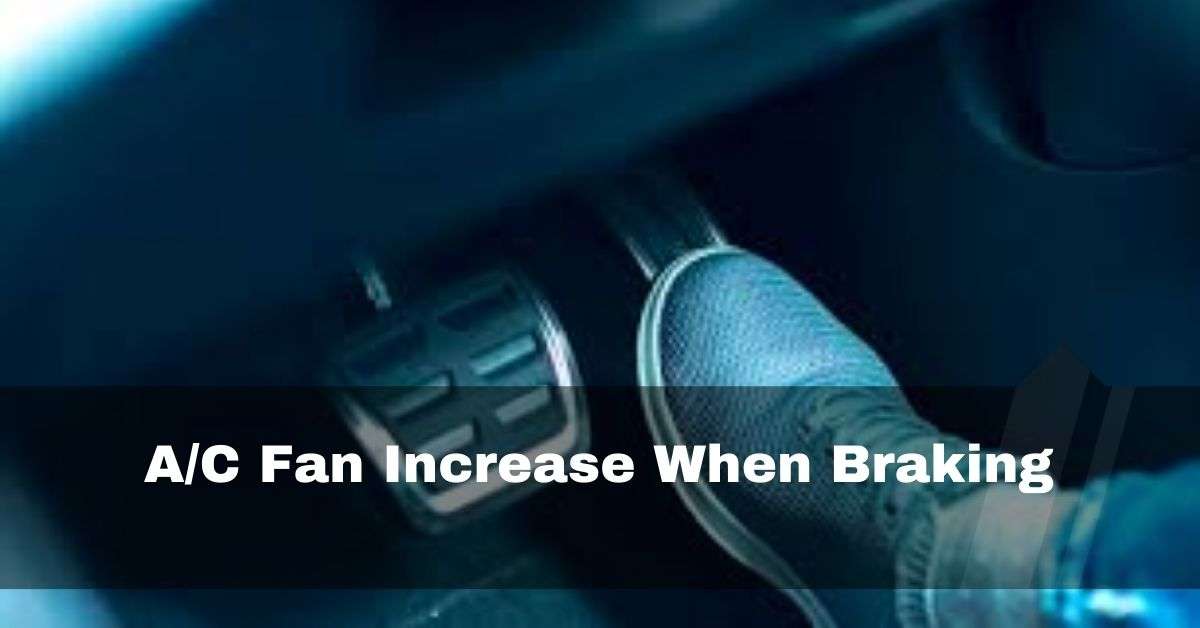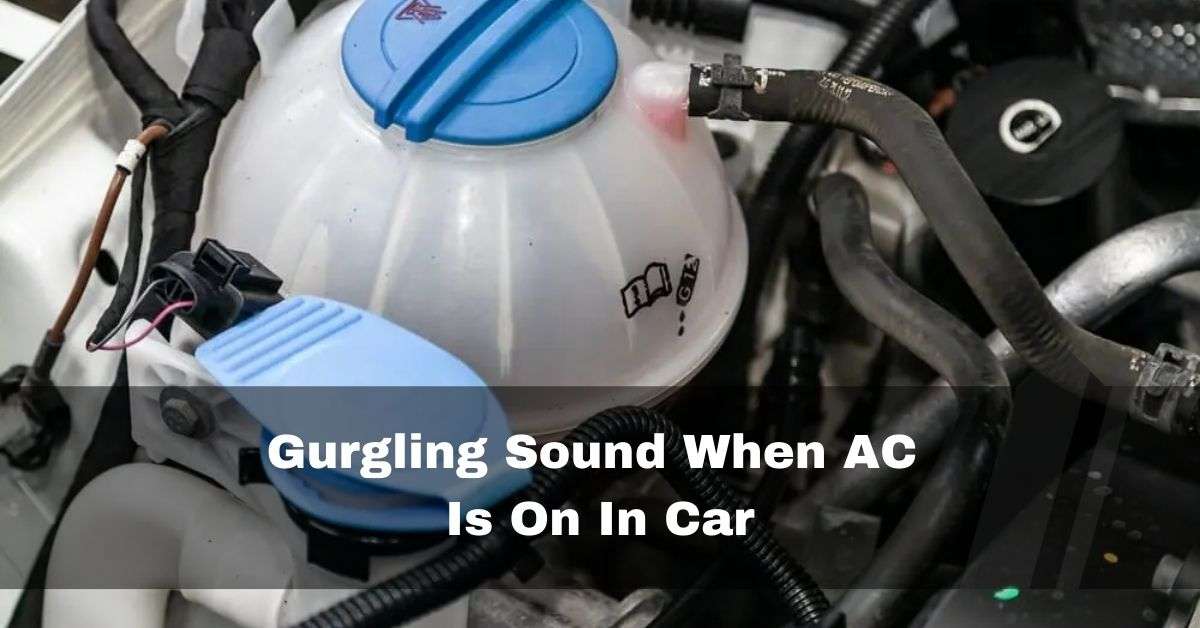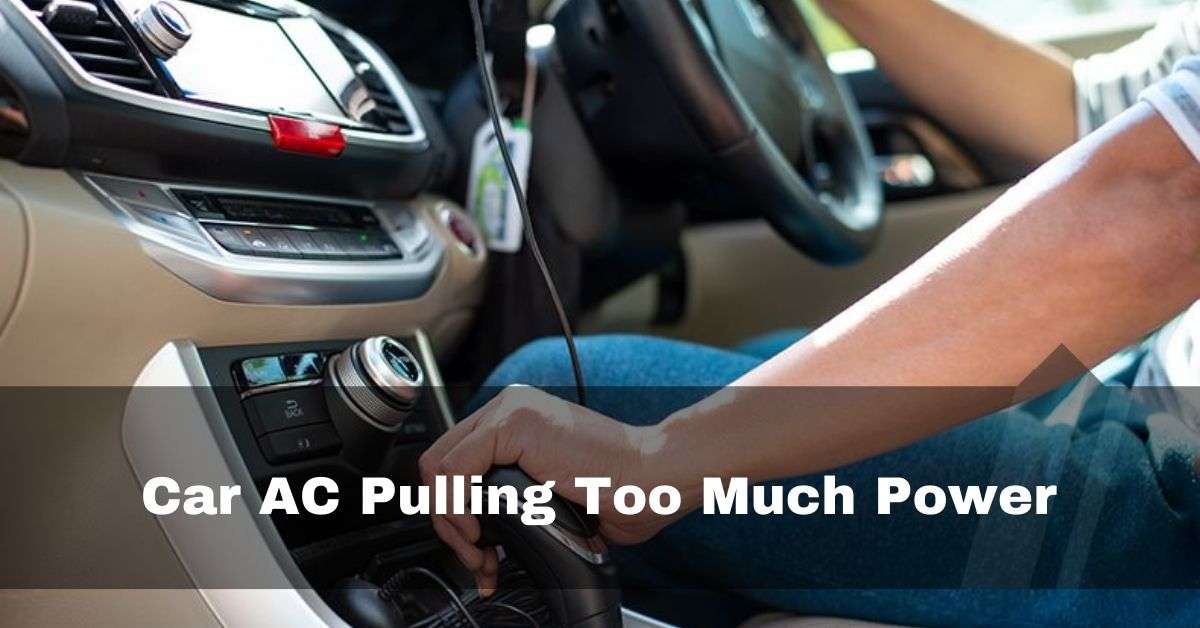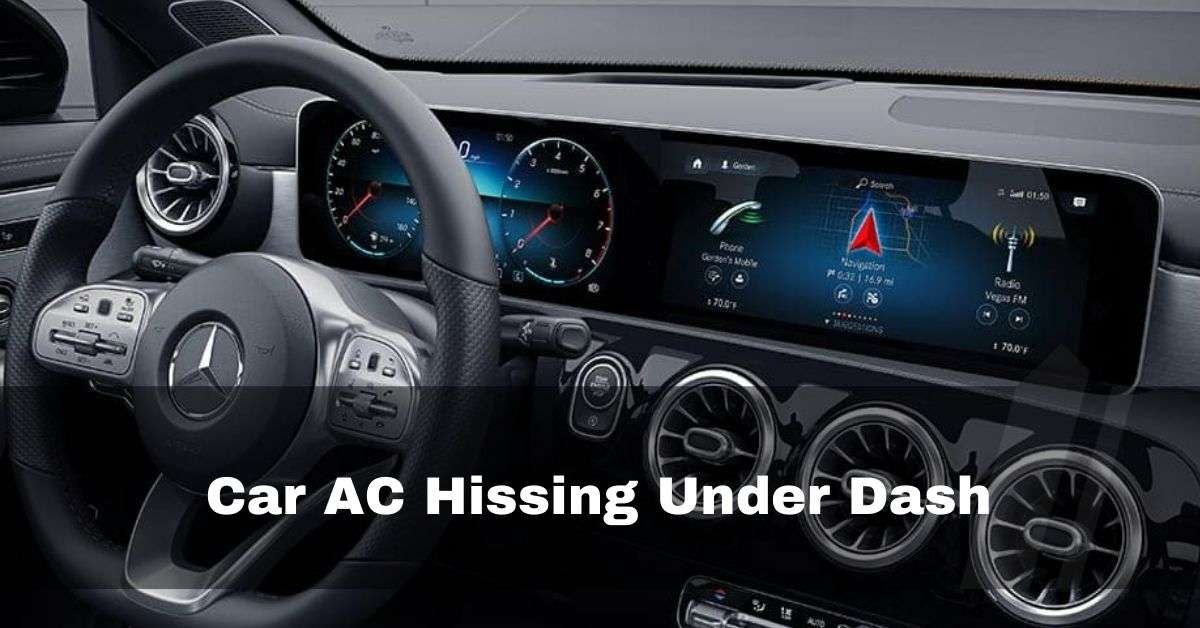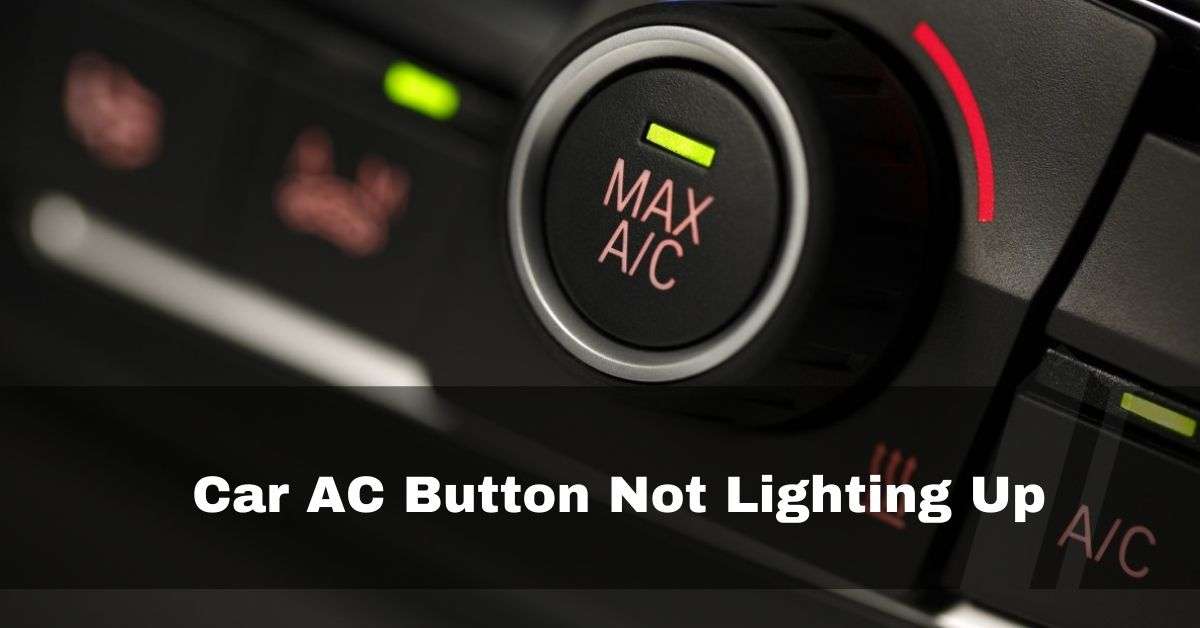You’re not alone if you’ve ever been frustrated by your car’s air conditioning stops working when you hit the gas. This problem is common and has several potential causes.
Usually, a faulty vacuum check valve under the hood is to blame for this. Remove the vacuum line from the check valve while the engine is running, then put your finger over the open end of the valve. When the valve is holding the vacuum, you should sense suction.
This article will examine the causes of your car’s AC compressor cutting out while accelerating and possible solutions.
Table of Contents
Why Car AC Compressor Cuts Out When Accelerating? Most Common Reason:
1. Vacuum Check Valve:
The vacuum check valve is essential to the car’s AC system operating correctly. It is intended to ensure a steady vacuum supply to several parts, including the AC compressor. The AC system may be impacted as you accelerate since the engine produces a higher vacuum.

The vacuum check valve may not be able to regulate the vacuum properly if it is broken or clogged, which could result in the AC compressor cutting out when accelerating.
2. Increased Engine Load:
The increased strain on the engine during acceleration is one of the leading causes for the AC compressor in your automobile to disengage. When you step on the pedal, the engine needs more power to move the car ahead.
The car’s onboard computer may briefly turn off the AC compressor to meet this requirement and release some power for the engine. A brief loss of cold air from the vents may result from this.
3. Faulty Compressor Clutch:
A clutch mechanism on the AC compressor engages and disengages the compressor as necessary. The compressor clutch may not engage properly when you accelerate if it is broken or worn out, which will cause the AC system to malfunction. A slipping or damaged clutch might cause irregular cooling and more harm if ignored.

4. Low Refrigerant Levels:
The refrigerant used by the air conditioning system, commonly R-134a, cools the air blown into the cabin. The amounts of refrigerant in the system may gradually decline if there is a leak, resulting in less effective cooling.
The AC compressor may shut off to protect the system during acceleration when the engine is under more stress due to a lack of refrigerant. Checking and refilling the refrigerant levels can be a brilliant place to start if your AC is not operating as efficiently as it once did.
5. Engine Overheating:
The car’s computer may turn off the AC compressor if the engine temperature exceeds a specific level to lessen the engine’s burden and help prevent overheating.

It is a precaution to stop the engine from suffering additional harm. Get your cooling system checked by a qualified mechanic if your engine overheats frequently to find and fix the root of the problem.
6. Electrical Problems:
Sometimes, the AC compressor can break down due to electrical problems. The compressor’s functionality may need to be improved by defective wiring, blown fuses, or a broken AC pressure switch, which will result in erratic cooling patterns. An automobile electrician can identify and fix these electrical issues to ensure the AC system is again functioning correctly.
How To Fix Car AC Compressor Cuts Out When Accelerating?
1. Inspect Vacuum Check Valve:
The vacuum supply line that powers the AC system is connected to the vacuum check valve, often found under the hood, near the firewall. Look for any obvious evidence of damage, such as cracks, leaks, or loosened connections, on the vacuum check valve. A quick vacuum test can determine whether the valve is operating correctly.

Remove the vacuum line from the check valve while the engine is running, then put your finger over the open end of the valve. When the valve is holding the vacuum, you should sense suction. The valve must be replaced if no suction or air is felt passing through.
2. Decreased Engine Load:
There are a few actions you can take to address the problem of the AC compressor shutting out during acceleration because of increasing engine load:
- Avoid abrupt acceleration and strive to increase speed gradually while driving.
- To maximize engine performance, ensure your car is well-maintained, including routine oil changes and air filter replacements.
- Consider using your air conditioner’s “recirculation” mode if you frequently drive in stop-and-go traffic. It will assist in keeping the cabin colder without placing an additional burden on the compressor.
3. Replace or Repair Faulty Compressor Clutch:
It’s recommended to be checked out and fixed by a licensed mechanic if your compressor clutch malfunctions. They will evaluate the clutch’s condition and decide whether to repair or replace it if necessary. The AC system may become even more damaged if this problem is ignored.

4. Refilling Refrigerant Levels:
Finding the leak in the AC system, fixing it, and then refilling it to the proper levels are the solutions for dealing with low refrigerant levels. It is better to leave this job to a qualified technician with the skills and training to handle refrigerants properly.

5. Reduce Engine Overheating:
Take the following actions to avoid engine overheating and eventual AC compressor disengagement:
- Ensure the coolant levels are within the recommended range by routinely checking them.
- Check the cooling system for leaks or obstructions; have it cleaned and refilled with fresh coolant if necessary.
- Consider using a higher-grade engine oil compatible with your vehicle’s specs to enhance heat dissipation.
- Before contacting a professional for help, pull over to a safe spot, turn off the engine, and let it cool down if you observe the engine temperature rising unusually.
6. Resolve Electrical Problems:
You’ll require an automotive electrician’s assistance for electrical problems causing the AC compressor to malfunction. They will identify the issue by inspecting the wiring, fuses, and AC pressure switch. Once the problematic component is located, it will be fixed or replaced.

FAQs
1. Why Does My Ac Compressor Stop Cooling When Speeding At High Rpm?
The compressor spins more quickly the faster the engine speed. The pressure at which a compressor discharges air increases with speed. The compressor can push the high-side pressure over the permitted threshold of around 3000 RPM before the switch disengages the compressor clutch.
2. How Do I Know If My AC Compressor Is Bad Or Needs Recharge?
If the air blowing out of your car is warm or hot, that may be the most straightforward sign that something is wrong with your air conditioner. If your car has enough refrigerant, the evaporator core will achieve the ideal cooling temperature. The air may blow warmly after beginning to cold. It might also never get cold at all.
3. How Often Should The Car AC Compressor Kick On And Off?
Car air conditioners cycle every 15 to 20 minutes when everything is in order. It varies depending on the make and model of the compressor, but it is less when the outside temperature is high because the system has to work harder to make up for it.
4. What Is The Most Common Cause Of Car Ac Compressor Failure?
The most frequent cause of compressor failure is loss of lubrication. Without a doubt, the most frequent reason for compressor failure is a loss of lubricant. It may occur if a systemic refrigerant leak permits oil and refrigerant to escape.
Conclusion
It can be annoying if your car’s AC compressor cuts out while accelerating, especially during the sweltering summer. However, you may effectively handle this problem if you know its underlying causes. It’s critical to have an experienced mechanic evaluate and fix your car’s air conditioning system, regardless of whether the issue results from a vacuum check valve, an increased engine load, a defective compressor clutch, low refrigerant levels, engine overheating, or electrical issues. Your car’s interior will remain comfortable with routine upkeep and timely treatment of any cooling system problems, lengthening the life of the air conditioning system’s components.

